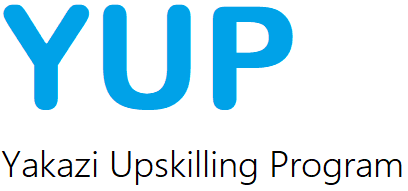Job Scams and What Job Seekers Need to be Aware of!

The job search journey sometimes seems like a job that is non-paid and challenging enough without the added risk of encountering scams. Unfortunately, fraudulent job offers are more prevalent than ever, taking advantage of hopeful job seekers and professionals who are eager for opportunities. These scams often look legitimate, disguising themselves as real organisations or recruiters, making it easy for anyone to fall prey as they leverage on the desperation of job seekers to get something doing. But do not be daunted by this. By being aware of some telltale signs and learning to spot the red flags, you can protect yourself from these sneaky traps.
Well then, how can you spot these scams?
If its too good to be true, it probably is
A good rule of thumb is to remember that if an offer sounds too good to be true, it probably is. High-paying jobs that require little to no experience, guaranteed employment, or “get rich quick” promises should raise immediate suspicions. Real employers rarely make such claims, especially for positions where the pay far exceeds the qualifications.
The unusual application process
Legitimate companies or organisations have standard procedures for hiring, including different stages of formal interviews, assessments, or background checks. Be wary of employers who hire you on the spot without any form of evaluation or who conduct the entire process through informal communication channels like WhatsApp or social media messaging. Similarly, if youre asked to pay for job placement, training, or any other service before you are officially hired, thats a clear sign of a scam. A real job will not ask you for money upfront.
Suspicious emails and websites
If you receive an email from a potential employer, take a closer look. Emails from fake recruiters often come from generic addresses (e.g., Gmail, Yahoo) rather than a company or organisations domain. The email content may also contain spelling and grammatical errors, or they may request personal information like your bank account or ID details early in the application process. Scammers can also set up fake websites that mimic real companies, so always double-check the websites URL for misspellings or odd domain extensions.
Interview red flags
Scammers may schedule interviews through unconventional means or hold interviews that are too brief and dont discuss your qualifications or job duties. Sometimes, they may request to hold interviews in places that do not seem like office spaces, more like an apartment. If the interviewer spends more time promoting the job rather than understanding your skills, its a warning sign. Also, be cautious if they push you to accept the offer immediately or without much detail on the role.
Fake job boards and social media scams
Job boards are helpful, but some fake postings slip through the cracks. Be cautious about offers from unfamiliar platforms, and always verify the legitimacy of the job and company. Do your due diligence by searching for the company or organisations name online and you might come across reviews of individuals stating their genuineness or red flags. Social media is also an increasingly popular avenue for scammers, with fake profiles and posts claiming to be hiring for reputable companies. It cannot be over-emphasised that it is crucial to cross-check and double-check on any job offers you come across with official company listings.
After carrying out your due-diligence and searching to verify how genuine an organisation or an offer is, how then do you protect yourself?
Again, to avoid falling victim to a job scam, verify the companys legitimacy by researching it thoroughly. Look for an official website, check for reviews, and call the company directly using contact details found on their verified website. There are several sites online where you can search if a website is genuine or not. When you receive an email, check the sender’s address and look for any signs of impersonation. Finally, never share sensitive personal information until you confirm the employer’s legitimacy.
In conclusion, being cautious and aware is key to navigating the job market safely. Don’t let the excitement of finding a job cloud your judgment; therefore, it is always imperative to investigate opportunities before diving in. For a safer job search experience, consider using trusted platforms like the Yakazi app to explore verified opportunities, access career coaching, and tap into a wealth of resources to enhance your career journey. Download the Yakazi app today and safeguard your path to professional success.
Stay alert, stay informed, and happy job hunting!

